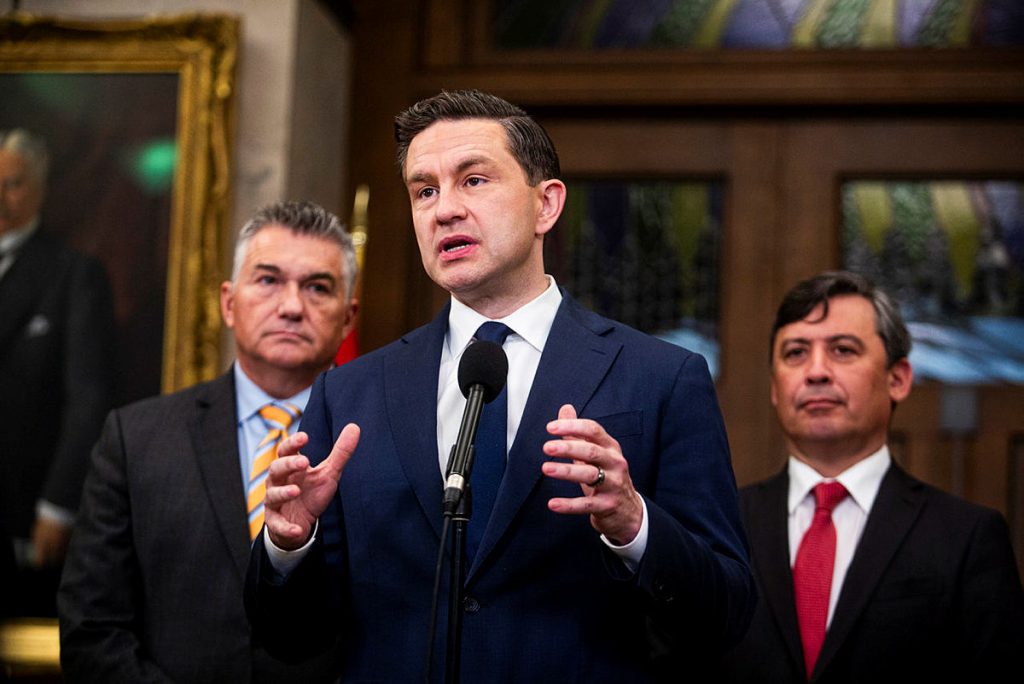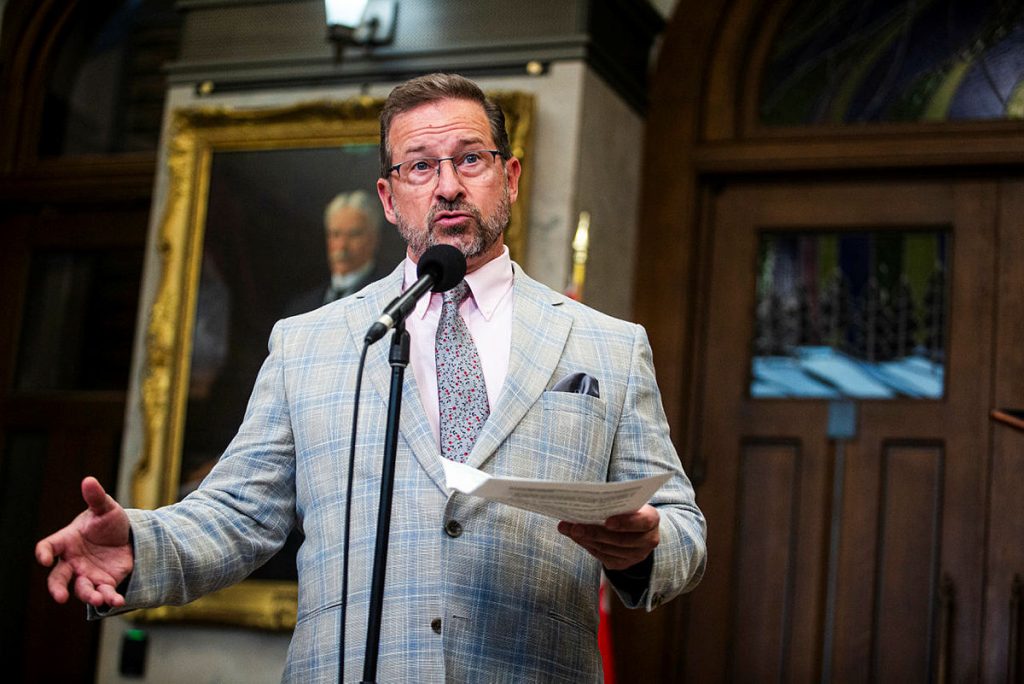If the Liberals had won just 60 more votes in the three ridings they lost by the narrowest margins in the April 28 election, they could have formed a majority government, say pollsters.
According to Elections Canada, a total of 19.5-million votes were cast in 343 ridings across the country. The Liberals won 43.7 per cent of the vote and secured 169 seats—just three short of a majority in the 343-member House of Commons. The Conservatives received 41.3 per cent of the vote and captured 144 seats. The Bloc Québécois—which fields candidates only in Quebec–and the New Democratic Party each garnered 6.3 per cent of the vote, with the Bloc winning 22 seats and NDP taking seven. The Greens earned 1.2 per cent of the vote and managed to win just one seat.
In comparison, after the 2021 federal election—when the House had 338 seats—the Liberals won 160 seats, the Conservatives 119, the Bloc 32, the NDP 25, and the Greens two.
The three ridings that the Liberals lost by the narrowest margins—and a win in these could have secured a majority government—were: Nunavut, where incumbent NDP MP Lori Idlout won by 42 votes; Terra Nova–The Peninsulas, N.L., where Conservative MP Jonathan Rowe won by just 13 votes; and Windsor–Tecumseh-Lakeshore, Ont., where Conservative Kathy Borrelli edged out a win by only five votes.

“When we’re talking about 60 votes, it’s realistically a ground war,” said Nik Nanos, founder and chief data scientist for Nanos Research, in an interview with The Hill Times. “It all comes down to the ground game for all the parties in those three ridings.”
Stephen Carter, an Alberta-based political strategist, said the election results reinforced the old cliché that every vote counts. He said that in every campaign, there’s always the potential to mobilize 20 to 40 more supporters, and Liberal campaign managers are likely regretting not doing more to get their base to the polls.
“As long as both teams did the best that they could do, then this is probably the outcome that was destined to be,” said Carter, who helped out rookie Liberal MP Corey Hogan (Calgary-Confederation, Alta.) in his successful election campaign.
“But I’m sure that there are some campaign managers and candidates kicking themselves, saying that, if only we’d done ‘X’ or ‘Y,’ [they could have won these ridings],” said Carter.
In Terrebonne, Que., Liberal candidate Tatiana Auguste won by a single vote, narrowly defeating Bloc Québécois incumbent Nathalie Sinclair-Desgagné. However, the result may still be overturned, as the Bloc has taken the matter to court. The dispute involves a mailed-in ballot cast in support of the Bloc that was returned to the voter due to an incorrect postal code on the return envelope. Elections Canada has acknowledged the error, and the Bloc is now requesting that the court order a new election in the riding.
“If you think about it nationally, it’s easy to sort of imagine your vote doesn’t matter, but this is a good example that on the local level your vote really, really does matter,” said pollster Janet Brown, in an interview with The Hill Times.
“And in terms of ‘get out the vote,’ this is, again, why ground game matters so much. People mostly focus on the national campaign, but the people who work in the local campaigns, the unsung heroes who distribute the lawn signs and knock on the doors. This election just really proves how important those people are, that those are the people who have to make sure they drag every single vote out for their candidates.”
In Windsor-Tecumseh-Lakeshore, Borrelli surprised many by winning the seat in the traditionally left-leaning region where Liberal and NDP candidates typically prevail.
In Terra Nova–The Peninsulas, a riding held by former Liberal MPs Churence Rogers and Judy Foote since 2015, Pierre Poilievre’s Conservatives clinched victory by 13 votes. On election night, former veteran CBC Radio host Anthony Germain, the riding’s Liberal candidate, was initially declared the winner by 12 votes, but a recount reversed the result, confirming Conservative Rowe as the elected MP.
Nanos said one of the key reasons the Liberals won the last four elections—with three of those resulting in minority governments—was the party’s superior voter efficiency.
“This is about as close as you come to forming a majority government without forming one—60 votes out of almost 20 million votes,” said Nanos. “So what we’re seeing, at least, is that every single election, where the Liberals have formed a minority government, they seem to be getting more efficient and they’re getting closer and closer to a majority.”
Prior to the 2015 election, the Conservatives were known for their voter efficiency, but that changed in 2015 when Justin Trudeau’s Liberals won a landslide majority. Since then, the Liberals have been beating all parties in their voter efficiency.
According to a Nanos Research poll released last week, the Liberals were leading with 44.5-per-cent support nationally, followed by the Conservatives at 31.4 per cent, the NDP at 12.8 per cent, and the Greens at 2.5 per cent. Since the election, the Liberals have been in a honeymoon phase, and are now enjoying a 13-point lead.
Nanos said that, based on his polling, if an election were to be held now, the ridings of Terra Nova-The Peninsula and Windsor–Tecumseh–Lakeshore would still be a tossup with the Liberals at an advantage, but that Nunavut would still be won by the NDP.

Greg Lyle, president of Innovative Research, said it was “very difficult,” for national campaigns in the last election to be focused on individual seats. He referred to the April 28 contest as a “political war of movement” election that was marked by major swings in public opinion.
Lyle explained that for nearly 18 months leading up to January, the Conservatives held a strong double-digit lead over the the Liberals, who were led at the time by then-prime minister Justin Trudeau. At that point, it seemed the Liberals would be lucky to win even 60 seats.
However, the political landscape changed dramatically after Trudeau announced his exit plans back in January, and a trade war triggered by United States President Donald Trump became a top-of-mind issue for Canadians. This led to a rally-around-the-flag effect, which benefitted the Liberals.
Current Prime Minister Mark Carney’s (Nepean, Ont.) decision earlier this year to seek the Liberal leadership further boosted the party’s fortunes, given his strong background in finance and his reputation as a seasoned executive who was best placed to handle international economic tensions. These developments helped the Liberals regain lost political ground, and the momentum carried through to election day.
Based on these developments, Lyle said that it’s unrealistic to expect field teams to keep pace with fluctuating voter sentiment, especially since organizing get-out-the-vote efforts takes weeks. One of the biggest challenges in identifying voter trends, Lyle said, is that most people no longer answer their phones. As a result, campaigns now rely heavily on social media and door-to-door canvassing to identify trends, which takes a long time.
He also pointed out that the three ridings the Liberals narrowly lost are in different regions of the country, each with its own dynamics. Nunavut, for example, is geographically vast but sparsely populated, and most residents’ primary language is neither English or French. In Windsor-Tecumseh-Lakeshore, the collapse of the NDP vote was a key factor, while the Conservatives performed strongly with the “hard hat” or blue-collar vote. Similarly, oil has an important local impact in rural Newfoundland because the province has their own offshore oil resource. There are many Newfoundlanders who work in the oil industry in their own province as well as in Alberta, which makes it an important local issue.
“This election was fundamentally about emotions,” said Lyle. “So, it was the anger and betrayal of older Canadians and Carney being seemed to be the better voice that caused older Canadians to move. But they didn’t move because they’re old. They moved because they were way more angry [about the] trade [war with the U.S.] than younger Canadians, who were way more focused on affordability.”
arana@hilltimes.com
The Hill Times
